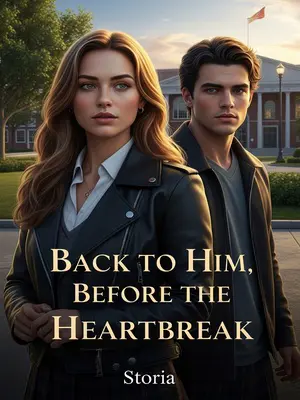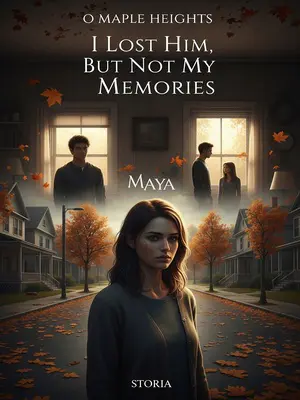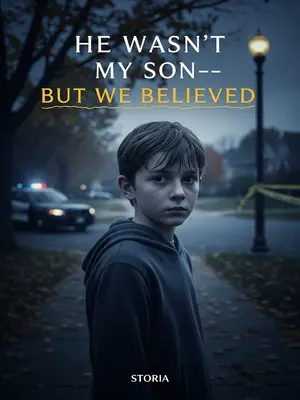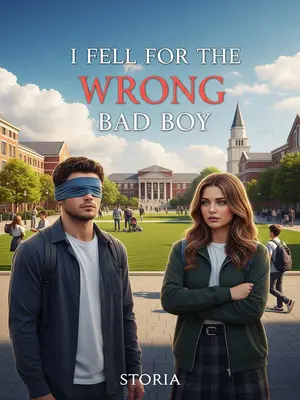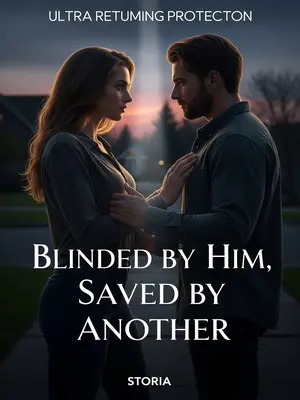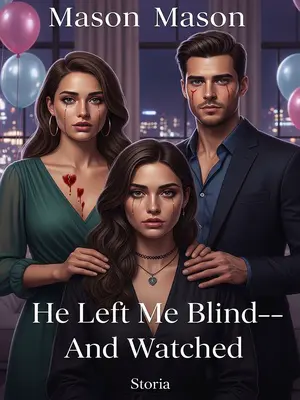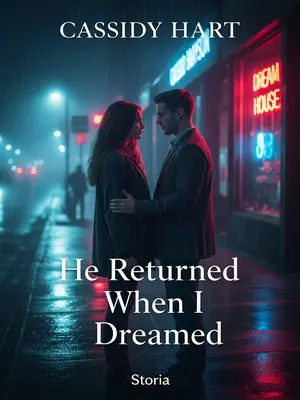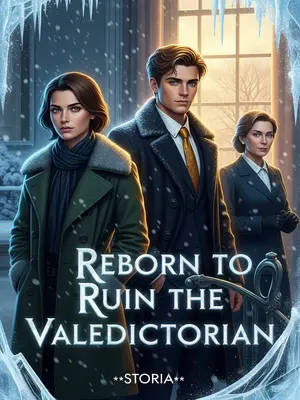Chapter 5: Stand-In for a Ghost
Logically, now that Lila was back, Grant shouldn’t need me anymore. I’d spent years racking my brain for excuses to see him, but after a night’s sleep, I still hadn’t come up with anything.
Then, out of nowhere, he messaged me first.
"Whitaker Place, be there at seven." That was it. No explanation, just the usual bossy tone, like he was sure I’d show up.
And of course, I would—especially since I was dying to see Lila for myself.
If she looked as much like me as people said, maybe we really were related. After all, I’m an orphan. Anything’s possible.
Grant said it was a small gathering—a welcome dinner for Lila—so I made sure to dress up.
When I arrived, the room was already buzzing.
"Hey, isn’t this our Ms. Serrano! Late again!" someone called, grinning as I walked in.
That set off a chorus: "Late means shots—three’s fair, right?"
"Totally!"
This time, it was all the city’s young power players. The real deal. The wannabes from before didn’t even make the guest list.
But the mouthy kid from earlier was here, hanging onto a woman I didn’t recognize. If he had a tail, it’d be wagging.
That had to be Lila Chen.
She looked every bit the part—white dress, understated jewelry, long dark hair tucked behind her ears. There was a grace to her that money couldn’t buy.
Lila glanced at me, curious, one hand still looped through Grant’s arm.
"You made it quick," Grant said, raising his glass at me across the table.
I caught the signal. He let Lila hang onto him, kept his tone easy, telling me to keep quiet.
Grant was a lot of things, but subtle wasn’t one of them.
I didn’t believe for a second that Lila hadn’t heard about us while she was abroad. The Chen family’s heiress wasn’t some clueless romantic.
During a lull, I slipped out into the backyard, needing a break from the noise and champagne laughter.
Within minutes, a woman joined me on the bench.
Lila still looked every inch the heiress, except now her hair was tied up in a messy knot.
"I heard about you even when I was abroad," she said, cutting straight to the point.
I’d expected her to approach me, but not to be so direct.
"I used to think you were blind, but now I see I was wrong."
Women know women best. She didn’t sugarcoat it.
"How’d you figure it out?" I asked.
"You don’t love him, and you don’t care about me. That’s… weird." Lila paused, then continued. "But you’re the CEO of Lakeside Holdings, and you’re not hurting for money, so why chase Grant like…"
"A puppy?" I finished for her, the word sharp but not bitter.
Lila nodded, a little awkward.
The night air made her voice ring out in the quiet yard.
I spat out the straw from my drink, letting it fall to the grass. "Want to hear a story?"
She nodded, settling in beside me.
"You probably did your homework—or maybe you didn’t have to. Everyone in Chicago knows I’m an orphan, self-made."
She nodded again.
"But do you know what being an orphan really means? You can’t imagine it. Since I can remember, I was in a tiny, broken foster home. Nearly twenty kids, living off government checks and the director’s salary."
"Most were sick or disabled. Someone once tried to adopt me, but I refused, because if I left, there’d be no one to look after the others."
"You can’t imagine how rough those days were."
When I was eight or nine, I’d swing by the grocery store after school, hunting for leftover produce. Rotten lettuce covered in mud and footprints—wash it off, and it was dinner.
If I couldn’t beat the old ladies to it, I’d just stand there, looking as pitiful as possible, until the clerks tossed the scraps my way.
Saved the foster home a few bucks on groceries.
We had one old TV, the kind with rabbit ears. Whenever I saw people in old movies throwing vegetables and eggs at villains, my heart would ache.
If only they’d thrown them at me—I’d have picked them up and eaten every bite.
"I was dirt poor. Everyone at school knew I was an orphan. No one bullied me, but no one wanted to be my friend either."
"Friendship costs money. I couldn’t even afford a penny candy at the school gate, so I couldn’t join their circles."
I kept my voice light, but Lila’s eyes widened.
"A penny each?!" she gasped, her perfect composure slipping.
See, kids from families like Grant’s and Lila’s can’t even picture that kind of poverty.
The director gave me pocket money, but I hoarded it.
If I saved enough, I could buy salt—enough to flavor meals for days.
"Any money I got from school, I gave to the foster home. I’d planned to start working after middle school, but the director said I was smart and made me go to high school."
"High school was even tougher." I couldn’t help but laugh, remembering.
"I had a biscuit for breakfast and a bowl of free soup—fifty cents. Lunch was rice with a veggie, two or three bucks. Dinner was just water—three to five cups and I’d be full."
"Sometimes I’d be so hungry I’d see stars. I’d go back to the foster home for the communal meal. School food was too expensive; it was cheaper to cook at home."
I rambled on, but Lila listened, eyes wide, her frown deepening.
I went on:
"So I was always alone. I was poor—everyone knew it. They called me orphan, pauper, or loser behind my back."
Lila’s frown deepened even more.
I gave a little laugh. "You get used to it. It’s true, after all. It was the looks and the silent exclusion that stung the most."
She reached out and patted my shoulder, as if she could feel the weight of those years.
"After all this, you still haven’t said why you became a stand-in."
"Don’t rush, I’m getting there." I shifted, propping my elbow on my knee and resting my chin in my hand.
"Everyone in class kept their distance—except one person."
"Daniel Hayes," I said, letting the name linger in the air.
"So you liked him?" Lila prompted, timing just right.
I thought for a second, searching for the right words. "To say I liked him would be to insult what he meant to me."
"If I had to say, he was the moon I looked up to from the bottom of the well."
That was as close as I could get.
The first time Daniel helped me was when he gave me a photocopy of the math competition sign-up form. The teacher had only given it to the boys, assuming they were the smart ones.
There was a cash prize for first, second, and third place—first place was five hundred dollars. I could sign up online, but I wouldn’t have known if Daniel hadn’t handed me that copy.
He wore a clean uniform, still smelling of laundry soap, and stopped me in the hall to give me the form.

